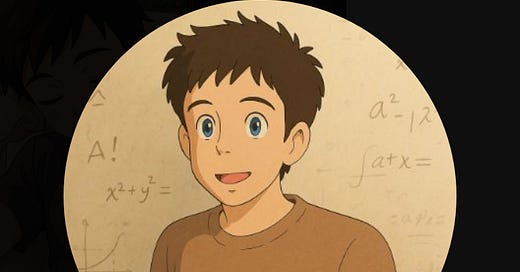Is Sam Altman gaslighting copyright controversy in recreating Ghibli-style for PR purposes?
Altman reports 1 million new users of ChatGPT added in 1 hour during craze over Ghibli-style outputs from ChatGPT new image generation.
Did ChatGPT just eat Studio Ghibli’s full corpus?
In the past week, I’ve heard some wild theories in response to my copyright analysis of ChatGPT’s ability to recreate Studio-Ghibli styled characters and images.
THEORY NO. 1: SAM ALTMAN IS GASLIGHTING US WITH THE CONTROVERSY OVER CHATGPT’S ABILITY TO PRODUCE STUDIO GHIBLI-STYLE IMAGES
The first theory is Sam Altman loves all the controversy over potential copyright infringement involving the flood of ChatGPT generated images depicting characters and scenes similar to the distinctive style of Studio Ghibli. According to Theory No. 1, Altman is gaslighting us with copyright controversies.
Not only did he change his profile photo on X to a Ghibli-style character of himself, he’s been constantly posting ChatGPT-created Ghibli style images on his X feed.
If this controversy is all for PR, it seems to have worked. Altman said they got 1 million new users in 1 hour!
The hullabaloo over ChatGPT’s Ghibli-generation of images drowned out the news of Google’s launch of Gemini Pro 2.5 Pro Experimental on the same day OpenAI launched its new image generator.
And we can’t forget that Sam Altman seemed to invite another IP controversy when OpenAI previewed its ChatGPT voice with a demo that had a voice eerily similar to Scarlett Johansson, who played the voice of the AI character Sam in the movie Her.
Not coincidentally, Atlman tweeted “her” during the launch. And now you can see the same tweet with his recently Ghibli-fied profile pic:
While wild, Theory No. 1 seems at least plausible, if not quite probable.
For the full story on this controversy and an even wilder theory, visit here.
Related story: Studio Ghibli v. OpenAI: is this the next U.S. copyright lawsuit to drop?
New York Times wants OpenAI’s projected profits
Meanwhile, the New York Times copyright lawsuit against OpenAI and Microsoft is no doubt the one to watch among the lawsuits in the Southern District of New York. (The Kadrey book authors’ suit against Meta is the same in the Northern District of California.)
After the quasi-nonprofit OpenAI just closed another funding round valuing the company at $300 billion, the New York Times is seeking OpenAI’s documents related to projected profits and the value of the company.
I expect Magistrate Judge Ona Wang will allow this discovery.
For the full story, visit here.





